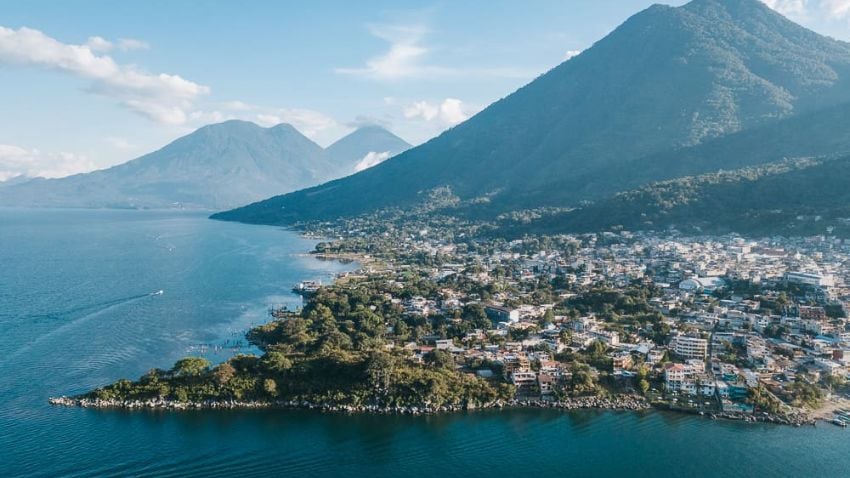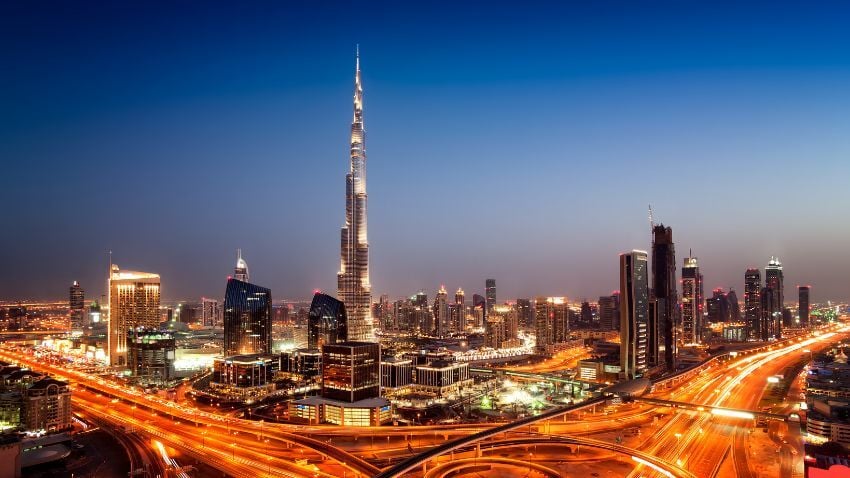Best Cities To Live In Mexico In 2026
Mexico remains one of Latin America’s most compelling destinations, especially for North Americans. More than a million expats call it home, and tens...

Guatemala is a tale in contrast. Stark natural beauty, on the one hand, but also the highest violent crime rates in Central America. Despite having the highest GDP in Central America, there is tremendous poverty and social inequality, and many ordinary Guatemalans struggle to get by. Despite its disadvantages, some expats do choose to settle in Guatemala. Life in Guatemala can be luxurious for those with substantial retirement savings or who earn in dollars. The cost of living is substantially cheaper in Guatemala, especially for services that are labour-intensive.
So what does it take to settle down in Guatemala? Well, to get there, you don’t have to do anything. Visitors from USA and Canada can travel to Guatemala without a visa for up to ninety days to participate in a little tourism and check the place out. Technically if you wanted to, you could just stay in Guatemala on a tourist visa, doing a border run every 90 days, but that is not advisable. Doing routine border runs by air can get expensive, and land crossings are notoriously dangerous.
So for people who want to stay in Guatemala long-term, the next step is getting a residency permit. Guatemala has a two-tiered residency system. First, you can apply for a temporary residence permit, and then two years later, when that expires, you can apply to renew it. Or, if you qualify for the rentista or pensionado program, you can apply directly for permanent residency. Usually, for people that are moving to Guatemala from Canada or the USA, it is better to just apply directly for the permanent pensionado or rentista residency permit. That way, you don’t have to worry about renewals or joining a convent just so you can live in Guatemala. You must show that you are financially solvent and have a monthly income of $1,250 USD or more.
Types of temporary residency visas:
Temporary workers permit
Student
Artists
Athletes
Investors
Religious
Science
Refugees
Temporary Residents
If you choose to apply for a temporary resident permit, you will need to select the appropriate form and get the corresponding documentation. For example, if you are applying for a student temporary resident permit, then you will need to show proof that you are enrolled in a university.
Unlike countries like Germany, you don't need to go to their embassy to apply for visas. You can do it online. The requirements to apply for a residency permit are as follows:
A photo of you
Your passport and a photocopy of your passport
Clean criminal record and background check
Affidavit giving sponsorship where necessary
All of your documents need to be translated into Spanish and apostilled as well.
Types of permanent residence visas:
Family
Permanent residence for foreigners who have lived in Guatemala for five years
Permanent residence for foreigners who have lived in Guatemala for one year and have a Guatemalan partner
Permanent residence for other Central Americans
Rentista and pensionada program
Related content: How To Get Your Residency In Honduras Today
-jpg.jpeg)
Map of Guatemala
In order for applicants to qualify for the pensionado permit, they simply need to prove that they have an income of $1,250 USD and an additional $300 USD per dependent person with them. Unfortunately, you cannot work with this permit, but you can start a business. This is a permanent residency, so you don’t need to renew it, and you get a cedula (photo ID card) right away. You can also enter and leave Guatemala at your leisure. However, you will lose your permanent resident status if you are gone for more than a year.
As a permanent resident, you will have all the rights of a Guatemalan citizen except the right to vote. But you can open accounts with banks, get a mortgage, start a business, own property, etc. After five years of permanent residency, you can become a citizen and acquire a Guatemalan passport.
In order to qualify for the rentista program, you need to demonstrate an income of $1,250 USD. This doesn’t necessarily have to be from a pension, you can set up a recurring transfer from your retirement savings or a bank account, or if you have dividend-paying stock or income from a business, that can all qualify. So long as you have a recurring income of $1,250 USD a month that is the important qualification.
Related content: Getting Residency In Costa Rica Is Pretty Easy
There are a number of fees you must pay each year. For example, you must pay a $40 USD annual foreigner fee simply for being there. Permanent residency is $700 USD (only $400 USD for the pensionado permit), and temporary residency is $200 USD for one year.
-jpg.jpeg)
National park in Tikal, Guatemala
Simply getting a residency permit in Guatemala alone does not impact as significantly on your taxes as establishing tax residency. You are considered to have established tax residency in Guatemala if you spend more than 183 days in the year there. There are other criteria as well, like where your assets are located, and what sort of ties you have to the country, but the primary concern is where you spend most of the year. If you do spend most of the year in Guatemala you are considered a tax resident.
Guatemala has a territorial tax system, so resident or not, you are taxed on any income that is sourced from within the country and you do not pay taxes on any income that comes from outside the country. While Guatemala’s income tax technically only has a 7% top rate, this is only for employment income. Income from a business is taxed at the corporate tax rate of 25%.
On the bright side, the capital gains tax is only 10%. It is important to note that if you are American, the American and Guatemalan governments do share taxpayer information.
Related content: The Basics Of How To Get A Second Passport Or A Second Residency
Even though Guatemala is an extremely poor country, many Americans and Canadians live there. You can have a pretty good life with $1,500 USD as a nanny for your kids is about $3/hour as well as a gardener to take care of your lawn and flowers. Food is extremely affordable and because there are lots of expats, you will see them in the street everywhere you travel.
If you want the best intel from the expat world, including profitable offshore opportunities, little-known tax-saving strategies, and hard-won insights on immigration, passports, and Plan-B residencies, all delivered to your inbox every single week, then join our daily correspondence, EMS Pulse®. Currently enjoyed by over 84,000 expats and expat-hopefuls worldwide. Fill in the form below to join our newsletter free:

Written by Mikkel Thorup
Mikkel Thorup is the world’s most sought-after expat consultant. He focuses on helping high-net-worth private clients to legally mitigate tax liabilities, obtain a second residency and citizenship, and assemble a portfolio of foreign investments including international real estate, timber plantations, agricultural land and other hard-money tangible assets. Mikkel is the Founder and CEO at Expat Money®, a private consulting firm started in 2017. He hosts the popular weekly podcast, the Expat Money Show, and wrote the definitive #1-Best Selling book Expat Secrets - How To Pay Zero Taxes, Live Overseas And Make Giant Piles Of Money, and his second book: Expats Guide On Moving To Mexico.

Mexico remains one of Latin America’s most compelling destinations, especially for North Americans. More than a million expats call it home, and tens...

South Korea is far more than K-pop and K-dramas. It is a country known for outstanding food, from bustling street markets to high-end dining, as well...

Asia is one of the most fascinating regions in the world for travel, offering an extraordinary mix of cultures, histories, and landscapes. From...